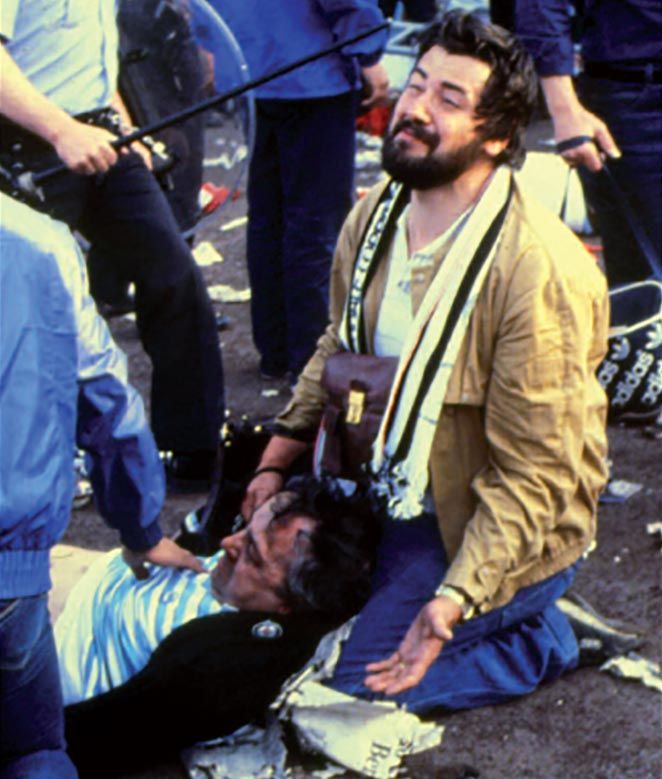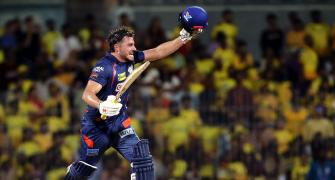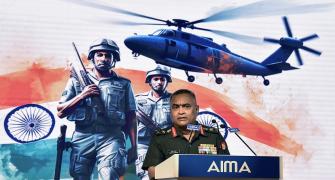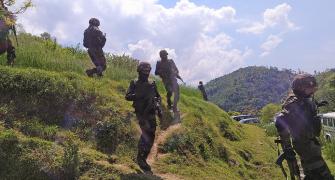On May 29, 1985, an hour before the start of the European Cup (now Champions League) final between Juventus and Liverpool at the Heysel Stadium, in Brussels (Belgium), a large group of fans of the English club breached a fence, crushing those seated near it.
Eventually, the wall collapsed, killing 39 people and injuring more than 600, most of them fans of the Turin club.
The authorities decided to go ahead with the game despite the disaster in order to prevent further violence.
Juventus won 1–0, thanks to a second-half penalty by legendary French playmaker Michel Platini, but it wasn't a victory to savour.
The stadium disaster resulted in all English clubs being placed under an indefinite ban by governing body UEFA from all European competitions, one that was subsequently lifted in 1991.
Besides, stadium safety, hitherto neglected, became a major issue.
There have been quite a few accounts of the tragedy since, but Heysel The Truth, by Francesco Caremani, is perhaps the most comprehensive and humane. It narrates the incident from the point of the view of the families affected.
On the 30th anniversary of the tragedy, in an exclusive interaction with Rediff.com's Bikash Mohapatra, the Italian author discusses the incident that affected so many people, including himself.

To begin with, congratulations to you on this wonderful effort. What inspired you to write this book?
I knew Roberto Lorentini, I had to be with him at Heysel, but in the end I stayed at home. When I became a journalist, his father, Otello, asked me to write this book because no one ever forgot the 39 angels of Heysel, because they were dead, without any censorship.
You were in your teens when the incident occurred. What were your initial recollections of it? How much of the incident stayed in your mind before you started the research for the book? How much did it affect you personally?
Roberto Lorentini was a young doctor; he died like a doctor trying to save a young fellow. (He was awarded a silver medal later for civil valour). For our community it was a great loss, as Giuseppina Conti, 17, a student of Arezzo (Tuscany), was the other victim.
It is a scar that has always remained. Too many people have tried to forget the Heysel incident because you can't die from a football game, you should not. In 1985, I was 15 years old. My research for the book began when I was 33.

The writing of a book is a process and it includes many lasting memories, both good and the not so good. Is there any such particular incident that you would like to share? About the challenges you faced, the incidents that stayed with you…
Writing this book was both easy and difficult; easy, because I could see all the documents that Otello Lorentini, then president of the 32 Italian victims' association, had preserved; difficult, for the subject and because those 39 bodies have suffered more than disgrace after being dead.
In Italy, in general, we don't love to remember the massacres and write a book that's fixed in memory. The Heysel disaster, emphasizing all the responsibilities and bad behavior, gave me many problems in my career as a journalist. But it was a good thing and it should have been done.
The book has been approved by the association for the families of Heysel victims. How difficult was it to convince them and get their perspective of the incident? What was Otello Lorentini’s contribution in the entire process?
Like I said, it was not difficult because they wanted me to write this book. Before going to press Otello told me: 'At last, this is the truth'.
During the Brussels process, victims' families were abandoned by everyone and fought alone. Otello followed all the sessions of the trial until the jury, which condemned UEFA (for the lack of safety measures in the stadium), passed a judgment that was made into a law.

During your research, and following the completion of the book, has there been any change of perspective in you as a person, as regards Italian and English football?
First of all, it has changed my perspective as a fan of football and Juventus. The thing that amazed me most, and that still hurts about Heysel, is that the lesson is not learned, especially in Italy.
This happened because there wasn’t a real memory and nothing shared about what happened. I don’t like hooligans, ultras and those who go to the stadium to cause trouble. I would like to remember that English football has changed (in the Premier League) after the Hillsborough tragedy and not after the Heysel massacre.
The final was played despite the incident. In hindsight, do you believe it was a correct decision to continue with the match?
It was the only wise decision on that night to prevent more deaths. The UEFA had chosen the wrong stage and the dilapidated Belgian stadium was not able to organize a service order enough; the hooligans were completely drunk and possibly drugged.
But, for me, it was not played like a final of the Champions League, because you can’t talk about football when there are 39 dead.

In the years following the incident, security at stadiums is given added importance. Heysel made way for a new, improved stadium. Do you believe enough is being done?
England have done much for the security in the stadiums, but after the disaster in Hillsborough not after the massacre in Heysel. They did well in Germany, in France, in Spain, but not in Italy; it is amazing that the country most affected by the Heysel disaster has learned the least.

You have mentioned that Heysel represents an indelible stain for Juventus. Can you elaborate on the same…
Juventus, by now, tried to forget and did not help the families of the Italian victims, in the process leaving them alone. For 25 years the club never remembered the dead.
Andrea Agnelli was the first president to take a step towards the victims' families, but before Juventus did not behave well, preferred to celebrate the damn Cup rather than pay tribute to 39 angels.

The Heysel incident was an implication of a dastardly act of hooligans. Even after so many years, hooliganism keeps raising its ugly head in world football. Your thoughts on this scourge in an otherwise beautiful game?
Violence is part of society. In England, for example, they have not eliminated it; however, they have taken it away from the stadiums. In Italy, it is different because the ultras have a power of blackmail against the club and then because the policy uses them.
In other countries, often politics, racism and chauvinism are mixed with football. What prevails is the idea of enemy to be killed rather than that of the opponent to be respected and admired if necessary.
From a footballing perspective, English clubs were banned from Europe following the incident. Liverpool, in particular, suffered the worst.
The ban ended their glorious years, and, in a way, started an era of agony which in some ways continues till date. Do you, in the hindsight, believe the length of the ban was a tad too harsh?
Disqualification was right and the proof is that until the disaster of Hillsborough in England no one had thought carefully about what had happened at Heysel, underestimating the phenomenon of hooliganism and, above all, the stadium security.
For this, Hillsborough is the son of Heysel. In fact, to learn, the British had to see more deaths, so the ban was perhaps too light.

On a more positive note, what makes Italian football so resolute? Heysel, Calciopoli, Serie A’s recent struggles and the re-emergence of Juventus. What makes Italian football survive?
Italian football, beyond the scandals and tragedies, is also served by righteous men and extraordinary players capable of winning World Cups and Cups of Champions.
There's great passion for football in Italy and the childish idea that every time a boy becomes a star the story is renewed. But today football is everywhere, a business, and you have to defend against corruption.
Finally, on a lighter note, Juve won the final back in 1985 – for their first title – and 30 years later, they are in the final again – aiming to complete a first 'treble'. What are your expectations from the Champions League final?
Sportingly, I hope that Juventus, thirty years later, win the Champions League; against Barcelona it would be a historic victory.
But I would like that people don't confuse the two things. Heysel was a massacre, football has nothing to do with it.
In Berlin, however, I hope it's only sport. At the end, memories of a massacre can't be erased with a win. They have already tried, but I'll always be here to defend the memory of Heysel.
*The first six photographs are by Salvatore Giglio, and those published in the book








